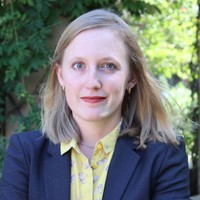Seraina Dual new assistant professor in biomedical signal processing
NEW DIGITALISATION RESEARCHERS
In 2021, Seraina Dual was appointed assistant professor in biomedical signal processing at the Department of Biomedical Engineering and Health Systems at the CBH school. Her research ultimately aims to help predict, prevent, and cure cardiovascular diseases.
What are your research area, research interests, research methods, and application area?

"I work on biomedical actuators, sensors, and algorithms which help to predict, prevent and effectively treat patients with cardiovascular disease," Seraina Dual says.
What do you think are the large research challenges in your research area and why?
"One of the biggest challenges is the durability of the technologies we develop. The heart beats 35 million times a year and our technologies need to dynamically move with the heart for each of these beats."
If you are looking for some research collaborator(s), what competence are you looking for?
"I am looking for material scientists who work on durable soft materials, chemists or engineers who develop bio- and MEMS sensors, and control engineers interested in human-in-the-loop control. A key factor for a successful collaboration is the interest in need-driven research and multi-disciplinary collaborations. I am also open to participating in larger national and international research consortia."
Can you tell us more about one of your research results and why you picked it?
"Cardiac volume measurements are vital in clinical practice for the early prediction and timely prevention of heart disease. However, the real-time measurement of cardiac volume is tremendously technically challenging. At present, cardiac volume measurements can only be performed in a hospital using ultrasound and the manual procedure must be completed each time by a trained clinician."
"During my PhD at ETH Zurich, I invented a system to continuously measure heart volume using off-the-shelf electrodes. I used the electrical activity of the heart as a means of measuring cardiac volume in real-time. The measurement is performed with a configuration of electrodes positioned inside the heart in conjunction with a novel type of amplifier. My technique has since been patented and has also been awarded the ETH Innovation Award for best PhD thesis and the Golden PhD-Thesis Award from the European Society For Artificial Organs."
Publication: Real-Time Ventricular Volume Measured Using the Intracardiac Electromyogram
Lastly, what do you like about Sweden, Stockholm and KTH?
"I really appreciate the collaborative spirit at KTH, which extends across all research domains and makes it a really fun place to drive forward excellent research ideas. I have come to know Sweden as a country where innovation and change are at the core of every activity."
Related
Cardiovascular modeling cross-school research receives platform funding

